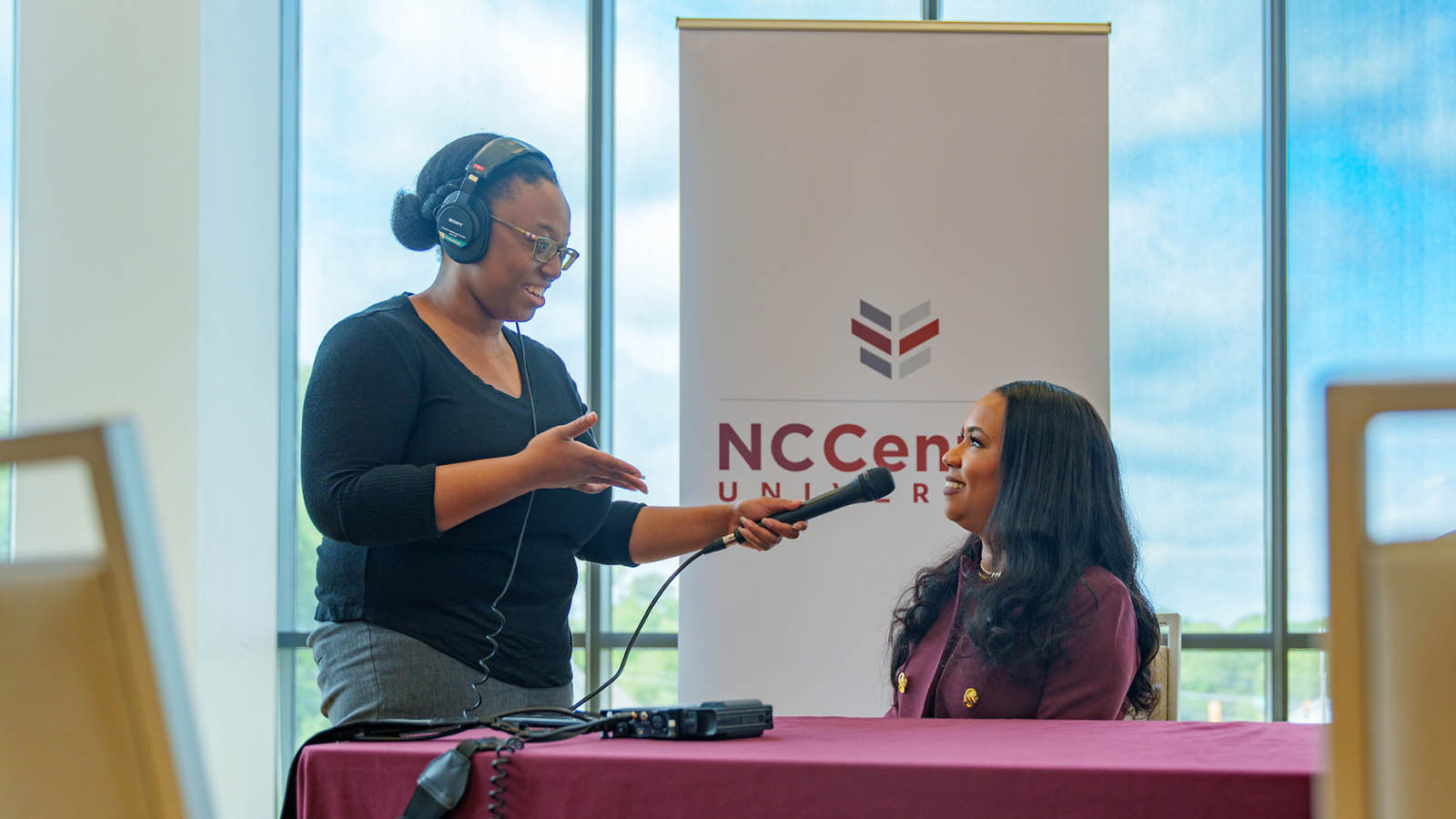In the fast-paced world of higher education, North Carolina Central University (NCCU) stands out as a beacon of academic excellence and innovation. With a deep understanding of the institution’s mission and values, the NCCU Office of Communication and Marketing (OCM) plays a pivotal role in building relationships with the media, shaping the University’s narrative and increasing its visibility.
Media Relations 101
University Spokesperson

The chancellor is the official spokesperson of the University. The chancellor has designated the chief brand officer within the communications and marketing office as the official spokesperson in matters of weather emergencies, crisis situations and other occasions requiring immediate public address. This individual also serves as the point of contact between the media and university resources and provides referrals to proper sources of information within the university community.
Eagle Thought Leadership

Often, OCM leverages NCCU’s esteemed faculty to serve as resources for reporters and producers on news topics – from international policy to local legislation and cutting-edge research. In turn, these encounters result in articles and radio and TV segments that demonstrate how NCCU energetically pursues its mission of excellence, fosters the recruitment of top-notch students and encourages financial support for the institution.
Faculty and staff are encouraged to give interviews to the media when asked and to provide information on matters within their field of expertise in a timely and courteous manner.
Faculty are also invited to submit their information as part of the OCM’s Eagle Thought Leader Database, which is provided to media to use as a resource as they develop stories regarding various news topics and respective NCCU initiatives.
If you are not experienced in handling questions from the media or have not established a relationship with the journalist who is requesting information, please feel free to contact the OCM for tips on interviewing and to set up media training.
Do’s and Don’ts to Keep in Mind When Speaking with the Media
Info Accordions
- Be prepared: Research the journalist or media outlet before the interview. Understand their previous work and the topics they cover.
- Be concise and clear: Use language that is easy to understand and avoid jargon or technical terms. Stick to your main message and avoid rambling.
- Provide valuable insights: Offer unique and valuable insights related to your industry, expertise or recent developments. Position yourself as a reliable source and share information that is interesting and relevant to the journalist’s audience.
- Build relationships: Establish a positive and professional relationship with the media. Respond promptly to their inquiries, provide additional information when requested and express gratitude for their coverage.
- Be honest and transparent: Maintain honesty and transparency when communicating with the media. If you don’t have the answer to a question, it is better to admit it rather than providing incorrect information. If there is a mistake, address it promptly and provide accurate corrections.
- Don’t go off the record: Avoid sharing any information that you wouldn’t want to be published or attributed to NCCU. Once shared, it can be difficult to control the dissemination of that information.
- Don’t speculate or guess: Stick to the facts and information you have verified. Speculating or guessing can lead to inaccuracies and damage your credibility.
- Don’t engage in arguments: Remain professional and composed, even if faced with challenging questions or criticism. Engaging in arguments or becoming defensive can harm your reputation and create a negative perception.
- Don’t overshare confidential information: Respect the boundaries of what can be shared publicly. Be cautious not to disclose sensitive or confidential information that could harm NCCU’s interests or violate legal or ethical obligations.
- Don’t ignore media inquiries: Timely responses are crucial. Ignoring media inquiries or delaying responses can result in missed opportunities and strain the relationship with reporters. Aim to provide information promptly or, if necessary, let them know when you will be able to respond.
Media Access to Campus
NCCU’s OCM is committed to assisting members of the news media. Following are guidelines for media access to the NCCU campus.
Indoor reporting permission is usually granted unless it disrupts university activities, compromises privacy, or jeopardizes the health and safety of our campus community. For public events like lectures or conferences, you typically will not need permission, but advance notice for interviews with guest lecturers and speakers is required.
When it comes to other campus travel or coverage outside of invited events, kindly contact the OCM office before arriving. While we welcome media and the public, there might be rare instances of access denial due to emergencies or significant concerns. For television crews, coordinate with the OCM for equipment setup to ensure it does not interfere with university operations.
For access to classrooms, libraries, laboratories or other facilities, media representatives need approval and are encouraged to seek an escort from the OCM. Please note that residence halls are off-limits to the news media at all times. If you are covering a specific news interest without a public event, an escort from OCM can help facilitate access to campus facilities. Advance notice is appreciated.
For any assistance or inquiries, reach out to OCM at [email protected] or 919-530-6295.